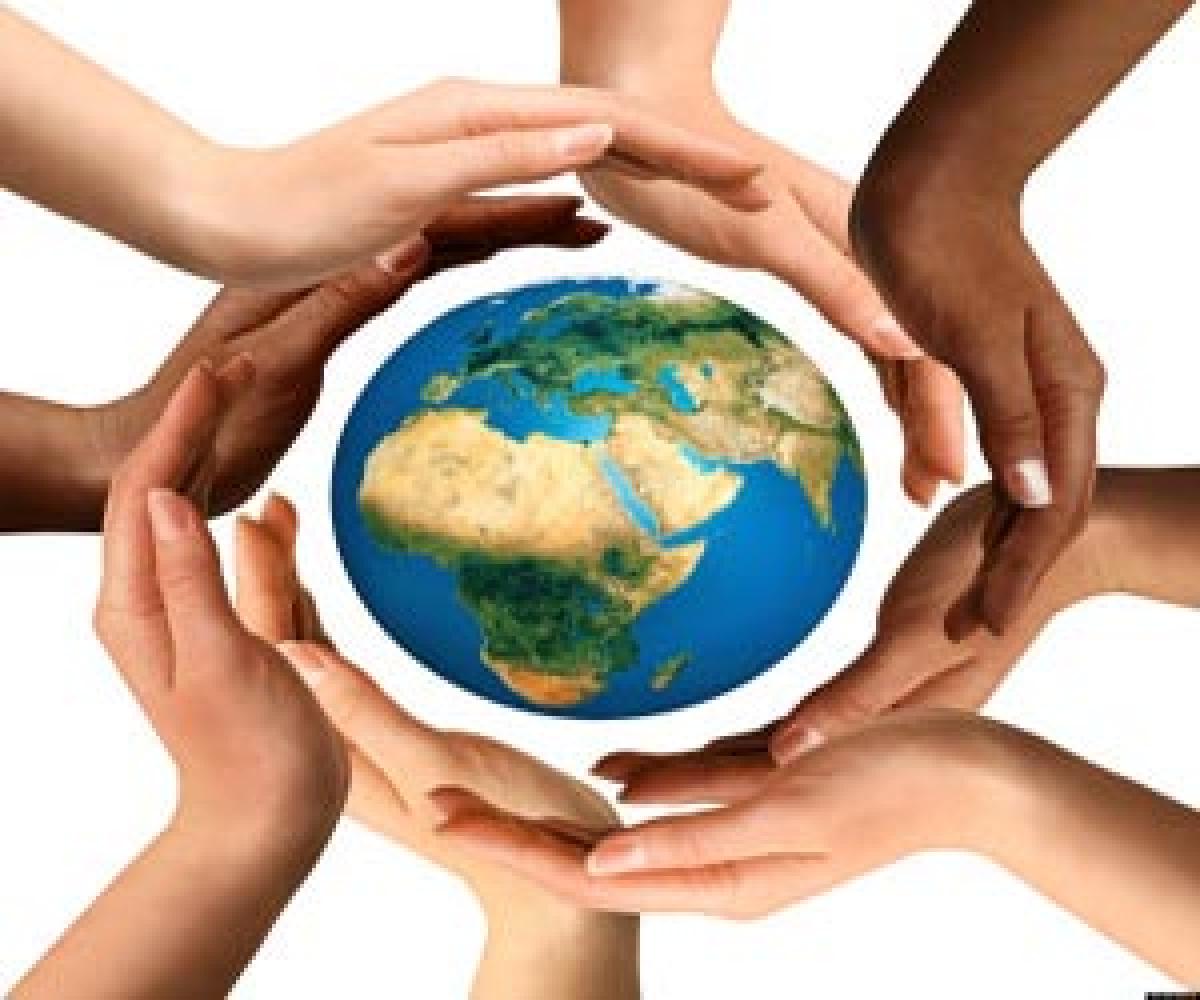Live
- 35 miners trapped under rubble in Afghanistan
- Lavanya Tripathi's Birthday Gift: Title Announcement of Her New Film ‘Sathi Leelavathi’
- Kerala Hindu leader gifts Rig Veda to Pope Francis
- OakTree School Celebrates Eight Years of Success, Announces Future Expansion
- Why plant-based milks may not be healthy
- Jharkhand: Ayushman Bharat cards in demand, Sahebganj residents rush to the centre
- Supreme Court likely to pass directions on implementation of policy to curb air pollution in Delhi-NCR tomorrow
- The first day of Group-2 Paper 1, 2 exams in Wanaparthy district ended peacefully, said Additional Collector Revenue G. Venkateswarlu
- VP Dhankhar urges corporates to invest in education
- Punjab DGP, MHA official request farmer leader Dallewal to end 20-day fast
Just In

In February 2017, I went to India from the United States of America to dedicate the Frank and Debbie Islam Management Complex at my Aligarh Muslim University (AMU) alma mater.
In February 2017, I went to India from the United States of America to dedicate the Frank and Debbie Islam Management Complex at my Aligarh Muslim University (AMU) alma mater. At the dedication of that complex, I said: "While the bricks and mortar are important, far more important is what will go on in this setting. It will be a place for sharing of information and imparting and development of knowledge. It will be a place where faculty and students can collaborate on innovative projects. It will be an educational empowerment zone."
In those dedication remarks, I was sharing my perspective on what I call "purposeful philanthropy." I look at my contributions to AMU and the numerous other organisations, groups and individuals that I contribute to in India and in the US not as charity but as investments. Those philanthropic investments are directed at helping to make a difference in pivot point areas that matter to the future of society.
As an example, in my comments at AMU I predicted: "From this management complex will come the future leaders who will make the world a better place." I felt completely comfortable in making that prediction because in addition to giving the financial support to construct the management building at AMU, my wife Debbie and I also provided funding for an endowed chair on Entrepreneurship and Innovation in the management school.
That ensured the human element would be brought into play as part of the educational equation. The distinction between purposeful philanthropy and charity is a critical one. The focus in charity is to provide a handout; the focus in purposeful philanthropy is to provide a heads-up. There certainly must be charitable support and assistance to address problem areas and the needs of the socially and economically disadvantaged.
The handout approach, however, has serious limitations. It does not get at the root cause nor change the underlying reason for the need for the charity. By contrast, purposeful philanthropy concentrates on improving circumstances and conditions.
This hand-up approach can take a wide range of forms, ranging from eliminating contaminated water that poisons those who drink or bathe in it to enhancing the safety of working conditions to developing the requisite knowledge, skills, abilities, attitudes and behaviours for a person to be successful in life.
The pivot point areas – areas that can be leveraged and effectively addressed to effectuate change and achieve positive outcomes – for purposeful philanthropy are virtually endless. My priority areas are education, arts, world peace and civic engagement.
I have chosen those areas because they are important to me and because I know that improvement in them can make a substantial difference. The short reasons for my picking and investing in them are: Education is the great equaliser and opportunity creator. It moves people up the ladder and to help others climb the ladder with them. It is the gift that keeps on giving.
As President John F. Kennedy said: "Art nourishes the roots of a culture." It connects and inspires citizens and communities. It has a unifying and healing power. We are living in an increasingly dangerous world and times. World peace is essential for the future of this planet. There is a deadly conflict now and threats of it around the globe which must be controlled.
India and the United States of America are the world's two largest democracies. Civic engagement is essential to keep those democracies vibrant and vital. I name these pivot point areas for illustration purposes only. Each citizen must choose an area or areas that matters to them for their purposeful philanthropy.
The essential thing is to make that choice and to invest. The size of that investment isn't what counts. The act of investment not only of money, but also of time and talent is what does. In closing, I would be remiss if I did not identify one final approach to charity.
The hands-off approach is really self-aggrandisement masquerading as a charitable contribution. This approach is driven by what I call an "edifice complex" – the desire to get one's name on a building such as a temple or mosque with little concern for what is being done there to improve the lot of the community or citizens in which it resides.
India needs and deserves better than that. Purposeful philanthropy accomplishes this. It provides the platform for maximising a citizen's participation and contribution to enabling India to achieve its full potential. It is a pivotal idea whose time has come.
By Frank F Islam

© 2024 Hyderabad Media House Limited/The Hans India. All rights reserved. Powered by hocalwire.com







